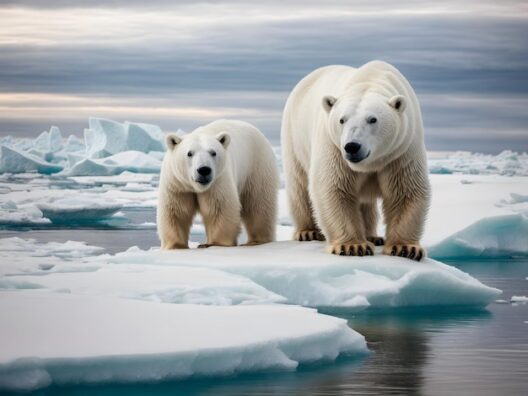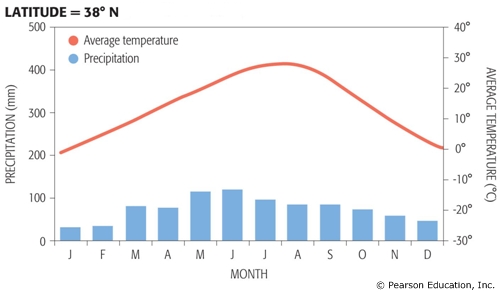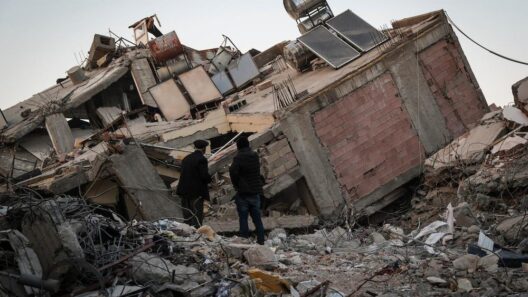The discourse surrounding climate change often incites fear and uncertainty, provoking inquiries into its ultimate consequences for humankind. Some speculate whether this seemingly unprecedented shift in our planet’s climate could culminate in human extinction. To dissect this pertinent question, it is crucial to sift through scientific evidence, historical contexts, and the potential trajectories of human adaptation. Indeed, the ramifications of climate change are profound, yet it is imperative to approach the topic with a balanced combination of urgency and optimism.
First, one must appreciate the scope of climate change. It is not merely an environmental concern; it embodies a multi-faceted crisis that intertwines ecological, social, and economic threads. The historical record shows that climate has altered dramatically over millennia, leading to extinction events among flora and fauna. The most infamous of these, the Permian-Triassic extinction around 252 million years ago, resulted in the loss of approximately 90% of marine species and 70% of terrestrial vertebrate species, attributable to extreme climate shifts. Such events illustrate a pivotal point: earth’s ecosystems are sensitive to climate variations. Today, the anthropogenic influences exacerbating this change threaten to precipitate a new wave of extinction, including some of our most interdependent species, potentially destabilizing food chains and ecosystems upon which humanity relies.
Considering these factors brings us back to the central inquiry: will climate change herald human extinction? While it is statistically improbable that climate change itself will directly lead to human extinction in the foreseeable future, the cascading effects may engender catastrophic outcomes for individual populations and regions. Rising sea levels pose existential threats to low-lying nations, displacing millions and engendering geopolitical tensions. Moreover, extreme weather events—hurricanes, droughts, floods—intensify with changing climates, rendering once fertile lands barren and destroying infrastructures essential for survival.
In the face of such dire predictions, it is essential to juxtapose these potential catastrophes with humanity’s resilience. History reveals an undeniable capacity for adaptation. The agricultural revolution, the Industrial Revolution, and most recently, the technological advancements of the 21st century exemplify human ingenuity applied in the face of adversity. As populations shift and resources become scarce, humans are likely to innovate solutions. Urban planning may evolve, integrating green infrastructure and sustainable practices to mitigate climate impacts. The rise of renewable energy sources illustrates human determination to shift towards a more harmonious relationship with the environment. This resilient spirit poses the question: can humanity not rise to face the modern complexities posed by climate change?
Moreover, the societal structures around us are also beginning to recognize the urgency of this issue. Global treaties, such as the Paris Agreement, underscore international commitment towards combating climate change. For many nations, aspirations to achieve net-zero emissions are being woven into policy frameworks, enforcing responsibility and collective action. The importance of collaboration cannot be understated. Individuals and organizations worldwide are burgeoning with innovative ideas—ranging from carbon capture technologies to sustainable agriculture practices—that reflect a burgeoning understanding of ecological stewardship.
However, while innovation and collaboration offer hope, the reality remains stark. Climate change does not adhere to human timelines. The impacts are already being felt disproportionately, with marginalized communities often bearing the brunt of environmental degradation. From small island nations to under-resourced urban areas, the most vulnerable populations face heightened risks. This inequality amplifies the urgency of climate action. Achieving a just transition towards sustainability will require proactive measures to ensure that no community is left behind. Education, equitable resource distribution, and community-driven initiatives stand as pillars upon which resilience can be constructed.
The existential threat posed by climate change, coupled with the interplay of human innovation and societal realization, compels us to confront our responsibilities towards future generations. Will climate change directly extinguish humanity? It is unlikely. Yet, the societal, economic, and ecological upheavals engendered by it could profoundly alter the course of human civilization if left unchecked. By initiating meaningful dialogue and fostering solidarity across political and social spheres, humanity can cultivate a collective identity rooted in stewardship of the planet, rather than exploitation.
In reflection, the potential for extinction intermingles with the promise of transformation. Climate change challenges us to reconsider our relationship with the earth and to reevaluate what it means to live sustainably. The prospect of dire outcomes can drive a paradigm shift, urging humanity to adopt a forward-thinking approach, encapsulated by resilience and responsibility. It prompts pivotal questions: how do we ensure food security in the face of agricultural shifts? How do we protect our coastal cities from rising waters? How can we harness technology to catalyze a greener economy? These inquiries herald opportunities for creativity, community, and compassion.
In conclusion, while climate change poses tangible threats that must be taken seriously, it is the spectrum of human potential that could dictate the outcome of our future. Rather than resign to a narrative of despair, we should embrace an ethos of proactive engagement. The vibrant mosaic of ideas, actions, and collaborations—fueled by both knowledge and emotion—hold the key to navigating the treacherous waters of climate change. As the world stands at this critical juncture, the ability to adapt, innovate, and unite can mitigate the risk of existential peril and foster a sustainable legacy for generations yet to come.






